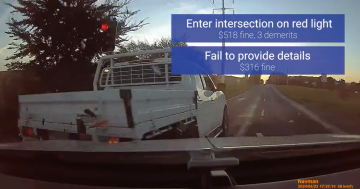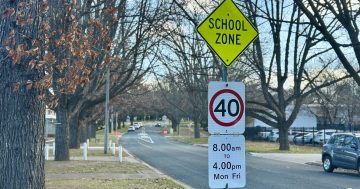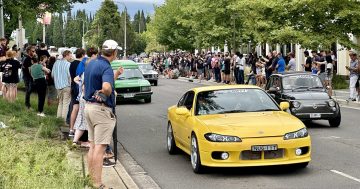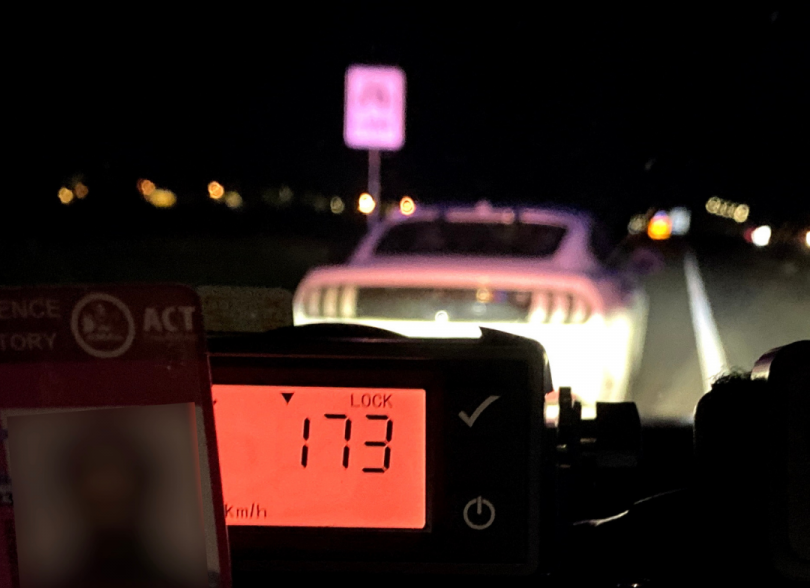
Excessive speed is now believed to have played a role in 11 of the 18 fatalities on the ACT’s roads this year. Photo: ACT Policing.
Police, lawmakers and the broader community are scratching their heads as they try to pinpoint why this year has been a “horror one” on the Territory’s roads.
The ACT’s top police officer has theorised it might have something to do with lockdowns and periods of isolation – and he’s warned those effects are far from over.
ACT Chief Police Officer Neil Gaughan said police are “concerned” about how young people approach the roads, particularly given the young ages of people involved in recent road fatalities and those killed.
Police now believe excessive speeding played a role in most of those fatalities – 11 out of 18 – although they remain before the ACT Coroner.
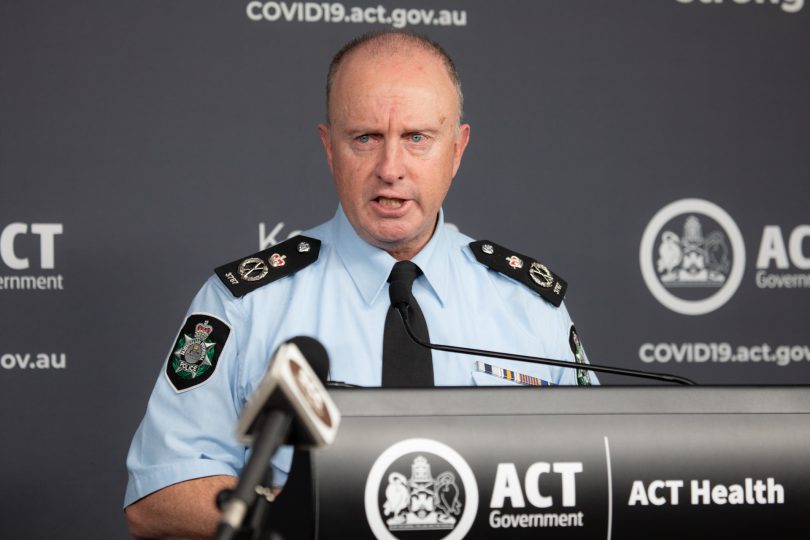
Chief Police Officer Neil Gaughan wants young people exposed to some harsher facts about the reality of driving. Photo: Michelle Kroll.
The CPO has also warned dangerous driving is too big of a job for the police to tackle on their own, and the education system must also play a role in tackling driver education.
“[This is] not solely a police issue … we need a renewed focus on the younger, most inexperienced drivers,” Deputy Commissioner Gaughan told a dangerous driving inquiry yesterday (14 November).
Deputy Commissioner Gaughan said it wasn’t only police officers finding risky behaviour becoming increasingly common but that teachers and nightclub operators shared those concerns.
He hypothesised it might have something to do with two years of disrupted schooling and isolation for young people.
“Behaviour in the community has changed and a lot of people haven’t matured through a normal process where you’re in a certain age group and through peer pressure you moderate your behaviour to act in a certain way.
“Two years of COVID-19 and we haven’t had that moderation,” he said.
The Deputy Commissioner said the increase in speeding incidents along major roads like Majura Parkway was such that he was surprised there hadn’t been additional fatalities.
“We’ve still got some big issues ahead of us due to the lockdown years … I think the tail is going to be very long.”
Operation Toric has been targeting a well-known-to-police group of recidivist offenders who fail to stop for police, engage in motor vehicle theft, dangerous driving and other offences, including residential burglary.
This has already led to police handing out 137 apprehensions – of which 74 were on bail with other court conditions and bail was regranted in 59 cases. Only eight were first-time offenders.
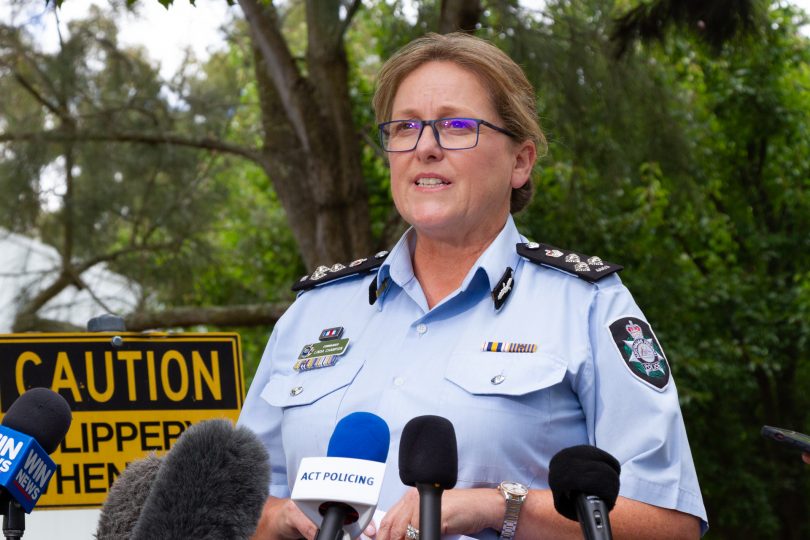
Acting Deputy Chief Police Officer Linda Champion said technology was being explored to help combat dangerous driving. Photo: James Coleman.
Acting Deputy Chief Police Officer Linda Champion said the task force had already reduced instances of failing to stop for police from two a day to two a week.
Most of the group being targeted by Operation Toric is aged under 35 and police believe it’s the core cohort (aged in their mid-20s) who are actually doing most of the driving while younger people are encouraging them as passengers.
They have engaged a criminal psychologist to better understand what is driving this sort of behaviour. They plan to run various campaigns to target each age group, including those who want that adrenaline rush but won’t drive.
Police remain concerned the time has passed to stop the behaviour of that older cohort as they just “don’t care”.
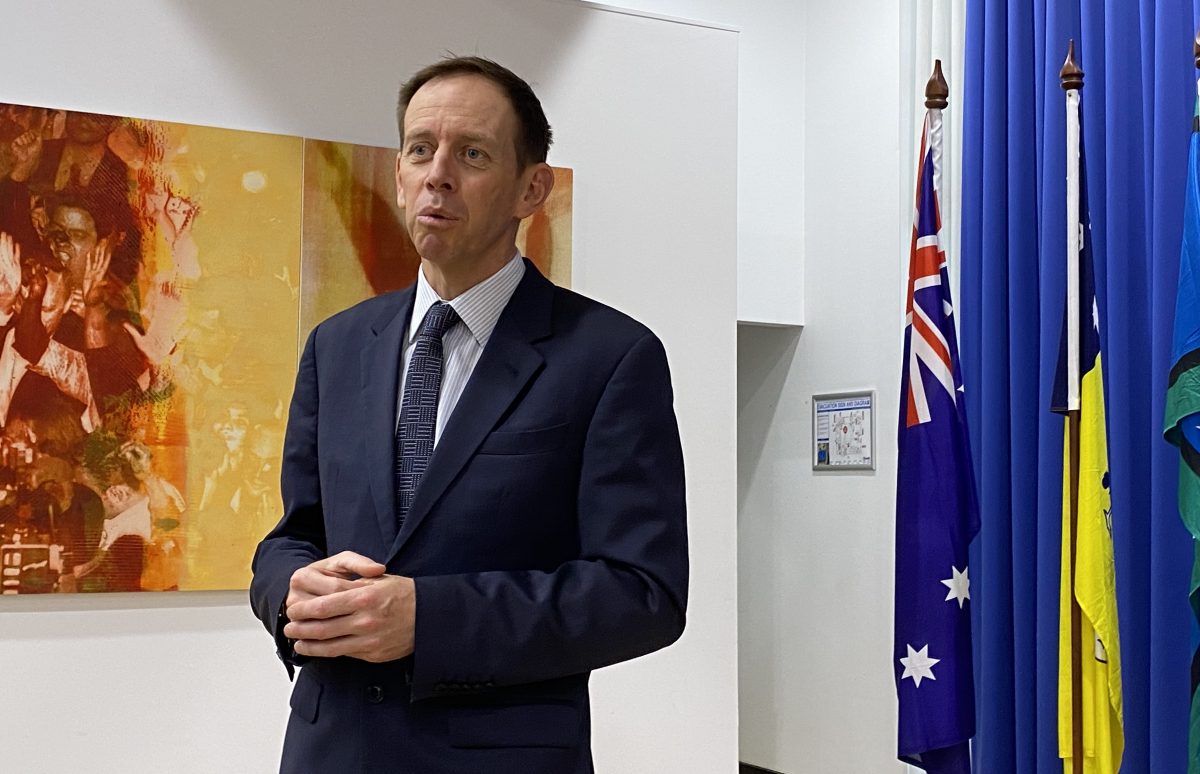
Attorney-General Shane Rattenbury fronted the committee inquiry yesterday Transport Minister Chris Steel yesterday. Photo: Claire Fenwicke.
The ACT Legislative Assembly has been investigating dangerous driving since August.
ACT Policing, Attorney-General Shane Rattenbury and Transport Minister Chris Steel appeared yesterday.
Victims of crime, including Tom McLuckie, Andrew Corney and Jason Taylor, sat in the gallery.
Original Article published by Lottie Twyford on Riotact.




